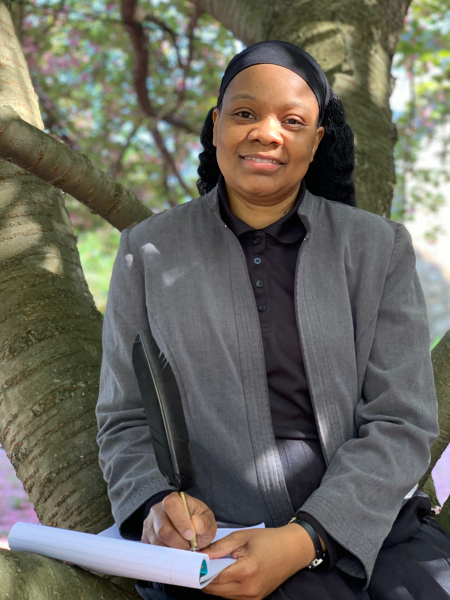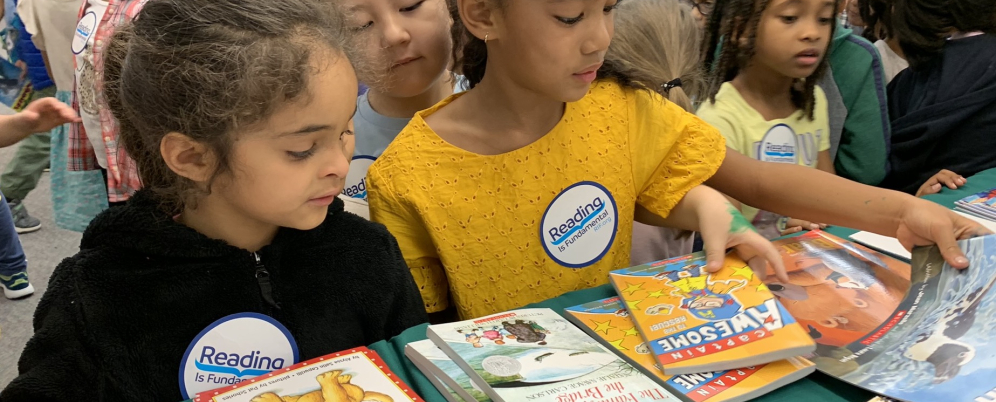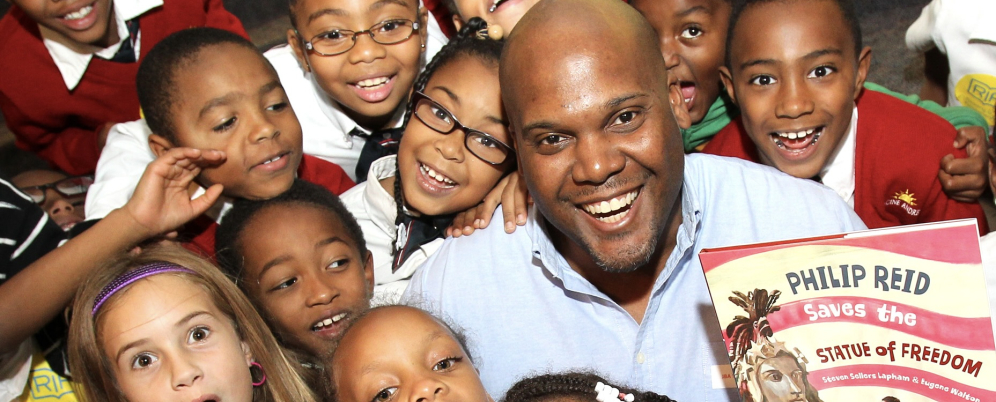Storytelling, Representation, and Family – a Conversation with Author Pamela Tuck

Reading Is Fundamental (RIF) recognizes the power of reading and storytelling and are very excited to have had the opportunity to ask our friend, author Pamela Tuck, some questions about her experiences with reading and writing as well as the many doors these open. RIF understands the necessity of diverse voices and representation in literature, of which Pamela is a strong advocate. Read on to learn about Pamela’s experiences writing from a young age, where she draws her inspiration, and much more. Find “As Fast As Words Could Fly” and accompanying resources on Literacy Central.
We know you share our belief in the power of books and shared reading experiences. What are some of your earliest memories of reading as a child that shaped your love of words and interest in stories?
I grew up as an only child in a family of southern storytellers. So, stories were a source of entertainment for me, and books became my companions. Before I learned to read, my family members read books to me. I’d often ask them to read a book over and over again until I could retell the story. I prided myself in “reading”, but my family said I was reading the pictures. Nevertheless, holding a book in hand and being able to tell what it was about, shaped a love of words and stories for me. As I became older, I read almost anything I could get my hands on. I just loved a good story that evoked my emotions.
Many of your books focus on the themes surrounding family, and it is clear that yours is incredibly important to you. In fact, the main character in As Fast As Words Could Fly is even based on your father! How did your family impact the way you experienced storytelling and how have those experiences influenced the way you tell stories yourself?
Some of my family members were civil rights activists. So many of the stories I heard were filled with emotion because they were personal experiences. My grandfather was the master storyteller in our family, and I cherished the times when my cousins and I sat around his feet to listen to his stories explode into eye-popping, jaw-dropping performances. I often tried to imitate his storytelling by recording myself telling made-up stories and using different voices for my characters. I could hardly wait to play the recordings for my family to see their reactions. When my grandfather was bent over with laughter, while listening to my recording, I knew I had become a family storyteller.
Do you remember the first piece you ever wrote? What inspired you to write it and what role did it play in your journey to becoming an author?
The very first piece I remember writing that empowered my writing journey was a poem about my grandmother. My elementary school offered a poetry contest and I wanted to win. So, I thought about what I could write well. Since I associated emotions with storytelling, I decided to write about someone I loved. I can’t remember the entire poem, but it displayed how I felt about my grandmother. To my wonderful surprise, I won first place! Winning a writing contest in second grade empowered me as a writer: a poet to be exact (at least in my 2nd grade mind). The support I received from my family, teachers, and community encouraged me to keep writing.
What do you think are some of the best ways to inspire and enable children to tell their own stories, as well as to be interested in the stories of others?
I believe one way to inspire children to tell their own stories is to let them see themselves and their experiences reflected positively in books. That builds confidence, as well as gives opportunities for each child to embrace the stories of others.
When it comes to inspiring children to write or tell their individual stories, it’s important to help them realize they have a story to tell and a voice to tell it. One writing exercise I’ve used with children is choosing a random word, usually an object, and asking the children to write about that object for 5 minutes. I encourage them to use their five senses as tools to add descriptive details (using a timer makes this exercise more challenging and fun). Often, the children are surprised at how much they have written in 5 minutes, and they are usually engaged in listening to the various stories that came from a single word, which validates the idea that they all have their own stories to tell and voices to tell it.
Is there any advice you wish that you could give a younger version of yourself?
My advice to my younger self would be to learn how to sift criticism: take what will help me become better at what I want to do and let the rest go. I would also tell my younger self that I don’t have to measure up to other people’s standards or opinions. To be true to myself and what I believe is right, even if I do it alone.
Pamela Tuck is a content developer of educational books for an EdTech company in New Rochelle, New York. She's also the mother of 11 children, who are her biggest cheerleaders. Pamela credits her writing to her upbringing surrounded by southern storytellers. Her family inspires many of her stories. She is the author of Mother of Many, As Fast As Words Could Fly (available on Skybrary), Color Struck, Sheldon, the Mushroom, and a forth-coming picture book, Johnny Tunes and the Gandy Dancers, scheduled to be published by Lee and Low Books in 2025.

